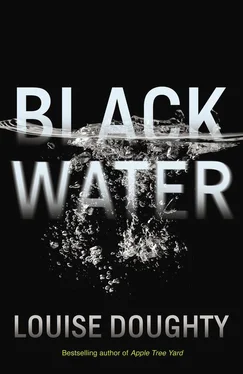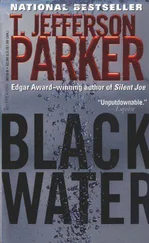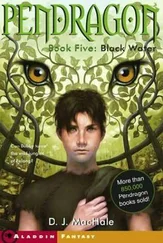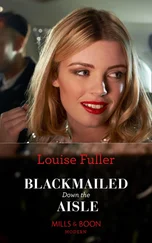The last time he had seen his mother was a year ago, the summer of 1997. He had called in on a Sunday morning — Francisca made him go. ‘I’m going to see Aunty Lies, I’m going all that way, the least you can do is call in on your mother.’ Francisca, his wife, had adopted his elderly mother and aunt — in Harper’s view, they were poor substitutes for the children he and Francisca had been unable to have. Children got less time-consuming the older they became: with the parental generation, it seemed to work the other way around.
His mother lived in a huge and gloomy house on Noorderstraat; a mausoleum, he thought, full of the relics of a dead husband, a long-dead marriage. All her life Anika had been short of money, until the point when she was beyond having use for it. Now she lived in a house she could have sold for a fortune, bought herself a new apartment and had plenty to spare, easily enough for the clothes and make-up and nights out she had craved all her life. But she was in no fit state to make that sort of choice by then. She put her clothes on anyhow, in whatever mismatched form came most readily to hand. Her make-up frequently migrated from the part of the face to which it had been applied. She rarely left her home. She smelled.
It was a light morning, the sun still pale, the air fresh. He trotted up the stone steps, lifted and dropped the heavy knocker, stepped back. His mother was easily alarmed if she thought someone was trying to shoulder their way into the house — she had slammed the door shut in his face before now. The door opened a few inches and he glimpsed a straggle of grey hair before Anika turned and ambled back inside, leaving the door ajar. Harper stepped over the threshold slowly, pushing at the door, then closing it behind him with a small shove that, however gentle, thudded with the resonance of fifty years of accumulated filial guilt. His mother had wandered back into the sitting room. It was eleven o’clock on a Sunday morning and, yes, she was drunk.
The hallway was dark but the sitting room darker still. It took a while for his eyes to adjust, then he saw the small figure of his mother, collapsed into the sagging chair in the corner, her tiny form swathed in a purple dress with a silver thread through it, once one of her favourites, and a huge green wool cardigan on top. She was barefoot and her gnarled ankles protruded from the bottom of the dress, like a wizened child dressed in adult’s clothing. She was only in her mid-seventies but at a glance seemed so shrunken, with thinning grey hair and bald patches, that she looked nearer ninety. Aunty Lies, ten years older, bulky, in a nursing home on account of her gout, was much more robust.
‘Let’s open the shutters,’ Harper said, walking over to them. ‘It is summer, after all.’
‘Don’t forget to leave the cake, you know, on the table, don’t forget, last time you forgot.’ Harper realised that in that particular moment — it could change at any time — she thought he was one of the home helps he hired to visit his mother, cook meals she rarely ate, keep her company for a bit. Wine and cake. He wondered what a diet of wine and cake did to your digestive system. He decided not to dwell on the thought.
The light from the tall windows illuminated the chaos of the room — the jars with rotting flowers glued into viscous brown liquid that sat in rows on top of the piano, the piles of yellowing newspapers on the sofa — she had yet to cancel her last husband’s subscription to a fishing magazine although he had been dead for nine years — the dirty plates and cutlery poking from beneath the chairs. Harper wondered briefly whether he should close the shutters again. His mother would forget to do it later and leave them open all night — but the thought of sitting in dusty darkness with her on a summer day made him feel as though he might suffocate.
‘Shall I make you a cup of coffee, Ma?’ he asked.
‘Don’t come here with your moaning and crying,’ his mother muttered, and Harper guessed that now she was referring to the occasion, many years ago, when the wife of one of her married lovers had turned up on the doorstep with two children and wept and begged Anika to leave their family alone. Anika had slammed the door in her face, then turned to Harper — fifteen years old, standing in the hallway — and said, ‘You should hear what he says about her, she nags at him all the time. She deserves to lose her husband if she behaves like that.’
He thought about going into the kitchen but the state it would be in would be even more depressing than the sitting room and his mother wouldn’t drink the coffee anyway. He sat and talked to her for a while but it became clear she wasn’t coherent and it would be a brief visit. Perhaps that was why he asked, that day.
‘Ma, do you remember Bud?’
Anika didn’t answer. She moistened her lips, clutching at the small glass tumbler that looked like it had recently held some sticky liqueur.
‘Bud, Ma,’ he repeated. ‘He was christened Joseph but we all called him Bud. Michael’s son.’ He wasn’t going to help her out by adding, your son too .
‘Michael. .’ she said slowly, savouring the word, the ghost of a smile on her face. ‘Michael. .’ She roused herself in her chair, using her elbows on the armrests to lever herself more upright, smiling openly now, looking at him, then lifting a bony finger.
‘You know, baby boy,’ she said. She hadn’t called him baby boy in a while. ‘The only one I ever really loved was Michael.’
Harper looked at her.
‘It’s true,’ she said, a little indignantly, suddenly lucid and seeing him, seeing his look. She pushed a few strands of grey hair back from her face, then patted at it, as if it was still bouffant. ‘He was the one, the one for me. Michael. Handsomest man ever, and so tall.’ Her face darkened again. ‘I was broken-hearted when he ran out on me. The Tatum Pole Boogie, now that was something. You think these old farmer types ever even heard anything like that?’ She waved her hand towards the window to encompass the various men since Michael, or the whole male population of Amsterdam, perhaps — possibly the European continent.
‘California. .’ she said in a singsong voice. ‘Now that was where we should have stayed. We only came back for your education. We should have stayed. I was happy there.’
Harper closed his eyes briefly, then opened them again to fix an expression on his face that would hide his despair. Was it possible that his mother, in her alcohol-induced dementia, had rewritten the history of their lives so comprehensively that she really believed they had come back to the Netherlands for his welfare? The thing about your mother is , Poppa had said, nothing is ever her fault . And he knew then that it was truer than it had ever been, that his mother, in her relentless quest for love, had gone crashing around the world wreaking havoc in other people’s lives and never once paused to consider that any other person had a right to happiness but herself. That included her own son. He was fifty-four years old. Maybe it was time to divorce his mother.
Bud had been a tall, solid boy, a little tank, Nina used to say. He liked sucking lemons, of all things. Nina would slice one in two for him and put one half face-down on a saucer to stop it drying out, then give him the other to chew on. He would wander around all day with it pressed against his mouth, eyes twinkling. ‘Nicolaath,’ he would say — he had a slight lisp as a toddler, he had already grown out of it when he died — ‘Nicolaath, why don’t you like lemonth?’ When he said this, he would beam, as if the existence of lemonth meant that all was right with the world.
Читать дальше












